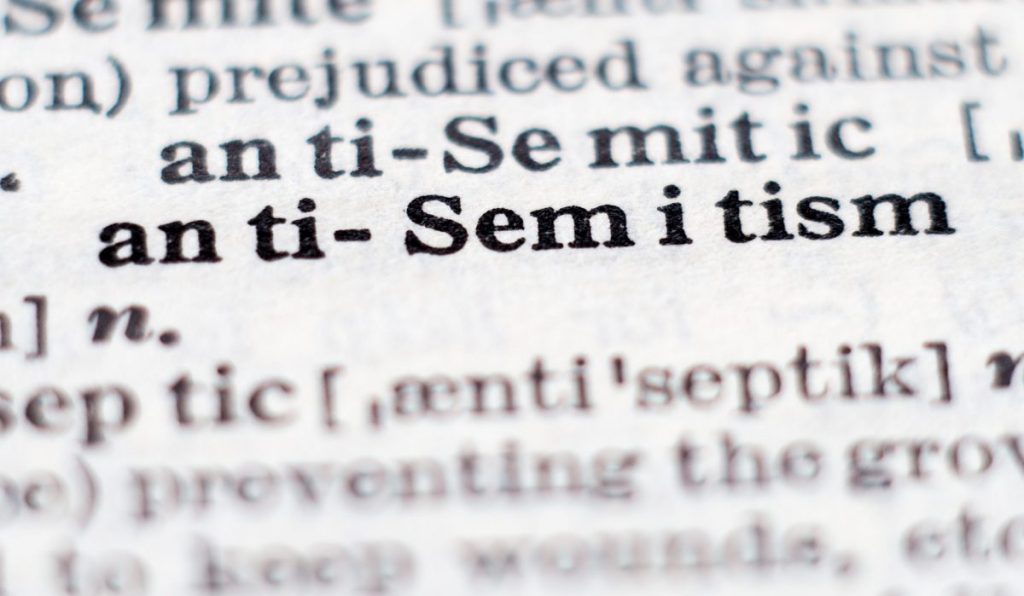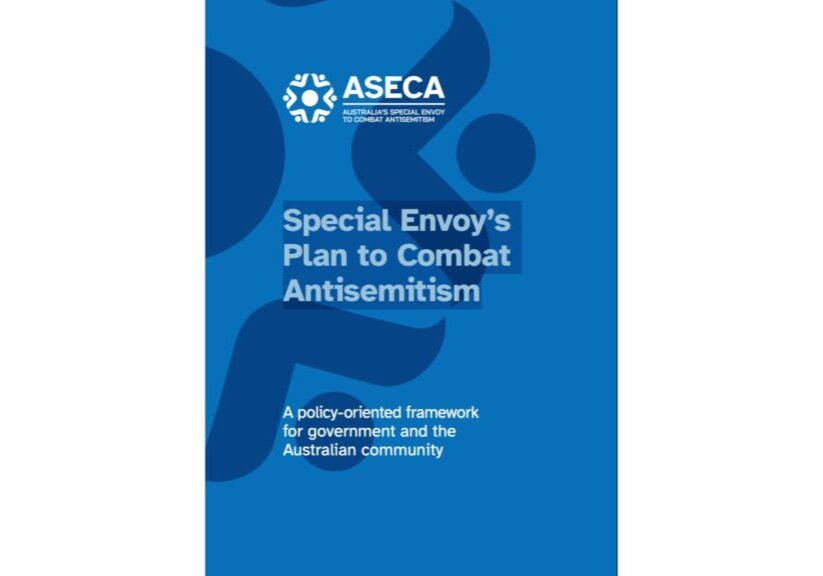Australia/Israel Review
Scribblings: The big lie about the IHRA antisemitism definition
Nov 23, 2021 | Tzvi Fleischer

Critics of the widely-used International Holocaust Remembrance Alliance (IHRA) Working Definition of Antisemitism – which the Australian Federal Government “embraced” in October, and the ALP opposition also supports – overwhelmingly claim that the problem with it is that it supposedly labels as antisemitic, and thus stifles, criticism of Israel.
To make this argument they typically have to ignore the clause in the definition which explicitly states: “criticism of Israel similar to that levelled against any other country cannot be regarded as antisemitic.” But they also almost always repeat a claim that “seven of the eleven examples in the definition are related to criticism of Israel.”
For example, Paul Heywood-Smith, former head of the Australian Friends of Palestine Association, claimed in an article on johnmenadue.com (Oct. 24), that “Seven of the [IHRA definition’s] examples equate criticism of Israel with anti-Semitism.” Likewise, Jewish Greens activists David Zyngier and Daniel Coleman wrote in the Age (Oct. 21) that “the definition has an appended list of 11 examples of anti-Semitism. Seven are focused on criticism of Israel.”
Even Michael Visontay, editor of the Jewish online publication Plus61J, writing in the Guardian (Oct. 23), asserted that “The IHRA definition contains 11 examples of antisemitism, seven of which relate specifically to rhetoric against Israel.”
This does sound bad – a majority of the examples are about criticism of Israel?! However, this claim is just completely untrue – as a quick look at the actual text of the definition makes clear.
It is true that seven of the 11 examples mention the word “Israel” – but this does not mean they have anything to do with criticism of Israel.
One is “Accusing the Jews as a people, or Israel as a state, of inventing or exaggerating the Holocaust.” This example is about Holocaust denial, and just mentions Israel in passing.
Two others are: “Holding Jews collectively responsible for actions of the state of Israel” and “Accusing Jewish citizens of being more loyal to Israel, or to the alleged priorities of Jews worldwide, than to the interests of their own nations.” These two are clearly about racist generalities against Jews collectively which invoke Israel, not about criticism of Israel.
A fourth one is about deploying classical antisemitic tropes toward Israel and Israelis: “Using the symbols and images associated with classical antisemitism (e.g., claims of Jews killing Jesus or blood libel) to characterize Israel or Israelis.” This should also be a no-brainer. If we are against spreading classical antisemitic stereotypes, using them while substituting “Israel” or “Israelis” for the word “Jews” should obviously be viewed as potentially antisemitic.
There are exactly three examples, not seven, that could mark certain extreme rhetoric against Israel as potentially antisemitic (though it’s worth remembering that all the examples are described as things that “could” be examples of antisemitism “taking into account the overall context.” In other words, the examples are actions which raise questions about potential antisemitism, not things which are automatically antisemitic). These are:
- Denying the Jewish people their right to self-determination, e.g., by claiming that the existence of a State of Israel is a racist endeavour.
- Applying double standards by requiring of it [Israel] a behaviour not expected or demanded of any other democratic nation.
- Drawing comparisons of contemporary Israeli policy to that of the Nazis.
Note that two of these clearly apply only to extreme demonisation of Israel, not “criticism” – comparing Israeli policy to the Nazis or claiming that Israel’s very existence (and not its policies) is racist. Anyone who says Israel’s existence is inherently racist, or that Israel is comparable to the Nazis, is not making a “criticism” – they are depicting Israel as an evil that must be destroyed.
Given that dozens of states were created in the aftermath of the Second World War, as Israel was, with virtually no demands that any others of them be destroyed, it is inevitable that saying the one Jewish state in the world must be destroyed raises serious questions about the motive of the person who says it. (And again, that is all the definition’s examples are – actions that raise questions about possible antisemitism.)
In reality, there is exactly one example in the IHRA Working Definition that could be said to apply to “criticism” of Israel: “Applying double standards by requiring of it [Israel] a behaviour not expected or demanded of any other democratic nation.”
But is anyone actually prepared to go out on a limb and say it’s fine to apply double standards to Israel and demand of it behaviour not expected of any other similar country? That’s obviously unfair and discriminatory – and doing so rightly should raise questions about motives, just as it would if someone applied double standards and harshly criticised Canada, or Japan, or France or Norway for something lots of similar countries were doing. (Obviously, if a Norwegian harshly criticised Norway for something lots of other countries were doing because they have good reason to care about their own country more, that would be an example of “overall context” which would make the criticism non-discriminatory. The same would apply to Israel.)
So, of the 11 examples, exactly one, not seven, applies to criticism of Israel – unless you want to argue saying Israel is a Nazi state that should be destroyed is “criticism”. (Doubtless some IHRA critics would say this – but this should rightly raise questions about their motives.)
And that one example is pretty inarguable as something that should raise potential red flags.
So if you read someone claiming that “seven of the 11 examples” in the IHRA definition are about criticism of Israel, you should immediately recognise that the author of that claim either has not read it and is grossly ignorant or else is being deliberately disingenuous.
Tags: Antisemitism, IHRA, Israel






